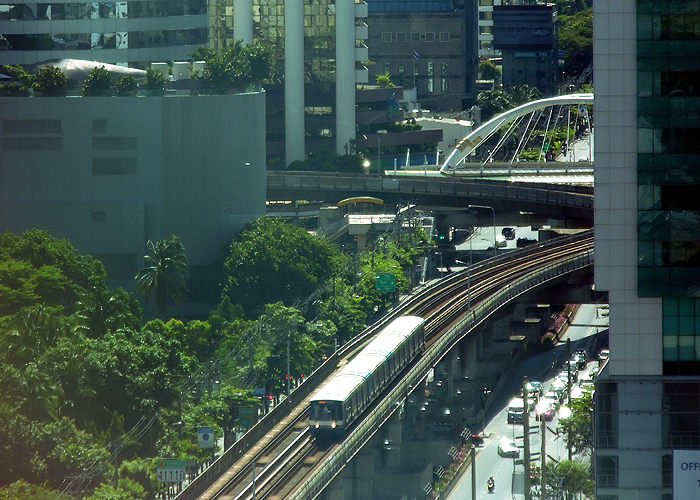Thailand’s Prime Minister this week said he would build rental and owner-occupied apartments at a price of THB300,000, or at rent prices of between THB1,000 and THB2,000 per month along the mass transit systems in Bangkok
This, he said, would be to help the poor out of poverty and with the costs of transportation but according to Dr. Sophon Pornchokchai, the President of Thailand’s Agency for Real Estate Affairs (AREA), this is not a good idea at all.
According to his organisation, which has consulted for many organisations including the World Bank and UN Habitat, and is the largest real estate and valuation centre in Thailand, an apartment along mass-transit routes within the inner city area of Bangkok is currently offered at anywhere between THB80,000 and THB420,000 per sqm.
A low-priced apartment would be as small as 20 sqm so would be in the region of THB1.6 million. Even with all the soft costs taken away, the hard costs will be THB1.1 million per unit.
He said ff the government would like to offer units at THB300,000, a subsidy of 800,000 would be added. If 100,000 units are planned to be built, the total subsidy needed would be THB80 billion.
If this scheme were to materialise, he said, there might be some privileged poor who claimed to be poor in order to be eligible to possess a unit under these housing provisions.
The Bangkok property markets will be distorted, he claimed. Hundreds of thousands of housing units offered for sale or rent today will not be sold, and many buyers would just wait for the scheme.
However, Dr. Sophon believes the government will not have enough to build this scheme. A few units may be built in order to gain popularity among Thais, particularly those who did not accept the coup d’etat last year, he said.
He also suggested that the Thai government should spend the money more wisely, like the construction of infrastructure and additional mass transit systems.
Nowadays, there are still tens of thousands of low-priced housing units of the National Housing Authority. Around 300,000 units of vacant housing are still available in the market or in the hands of banks and other financial institutions, as well as at many asset management companies and the Legal Execution Department.
In addition, the government should enforce a compulsory Escrow account, which is voluntary at present, in order to create a strong confident to the buyers which will bring more transaction into the markets.
Also property tax should be enforced, he said, in order to strengthen local finance for the development of local infrastructure that will help increase the value of properties. Turnkey infrastructure and mass-transit developments on a Bank of Thailand basis should be promoted to create more choice of residential locations for the public, he concluded.
Andrew Batt, International Group Editor of PropertyGuru Group, wrote this story. To contact him about this or other stories email andrew@propertyguru.com.sg





